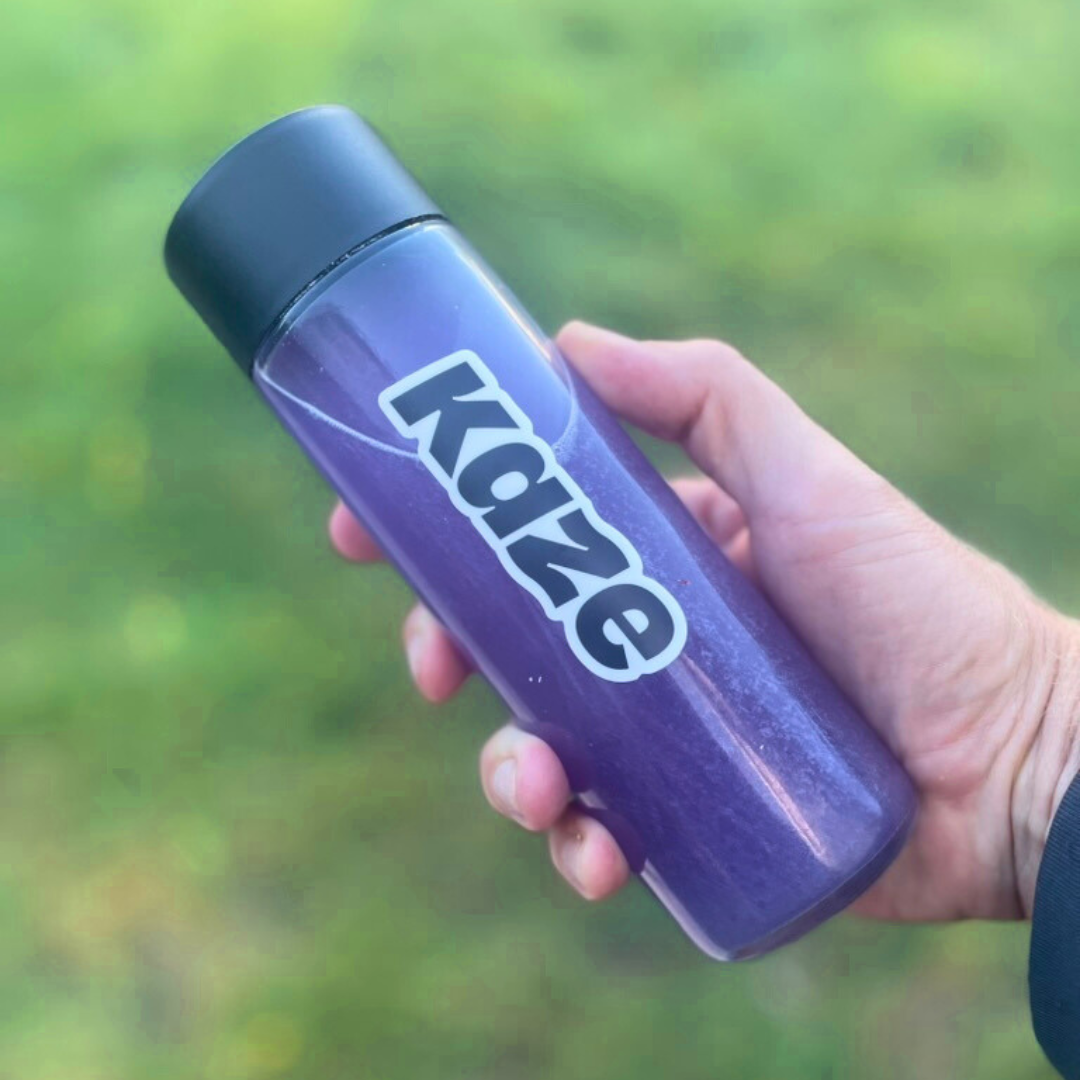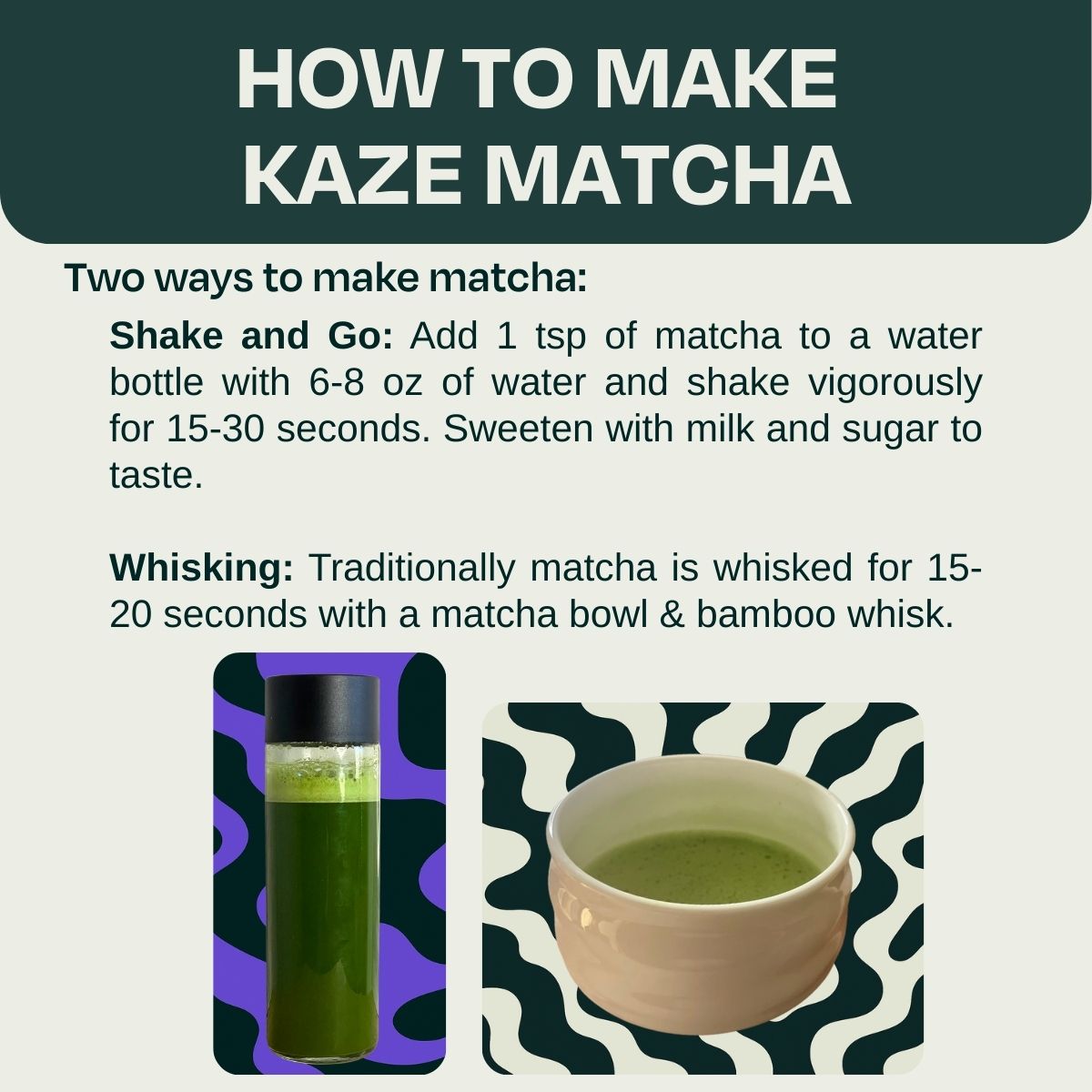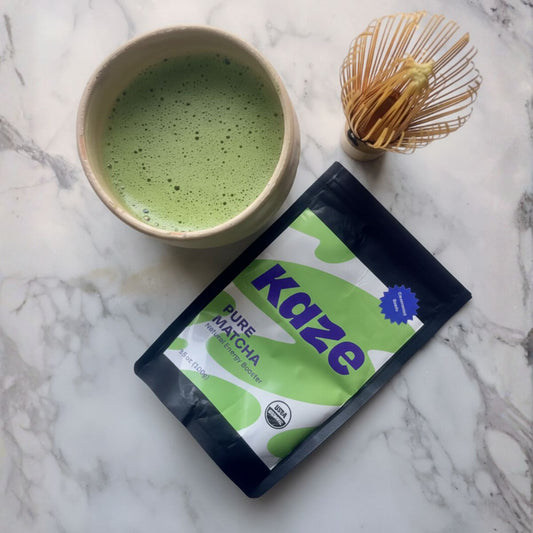Science Backed Ingredients

Why We're Different
Most functional drinks are either packed with stimulants or too weak to matter. Ours are built with clinically dosed ingredients proven to support calm energy, clear focus, and better mood.
Clinically Studied Ingredients
-
L-Theanine
L‑theanine is a naturally occurring amino acid, known for promoting a calm yet alert mental state. Unlike sedatives, it doesn’t dull your thinking—it enhances it. L‑theanine increases alpha brain waves, which are associated with relaxed focus and creative thinking, while modulating key neurotransmitters like GABA, dopamine, and serotonin.
A double-blind, placebo-controlled study gave participants 100 mg of L‑theanine and 50 mg of caffeine and found significant improvements in task-switching accuracy, reaction time, and reduced distraction, compared to either compound alone.
Source: Owen et al., Nutritional Neuroscience, 2008 (PubMed ID: 18681988)
-
Creatine Monohydrate
Creatine is renowned for powering athletic performance, but it also plays a key role in brain energy metabolism. By replenishing ATP—the energy currency of cells—it helps your neurons fire efficiently, supporting memory, focus, and mental stamina.
A landmark double-blind, placebo-controlled trial gave vegetarians 5 g/day of creatine for six weeks and saw significant improvements in both working memory (backwards digit span) and general intelligence.
Source: Rae et al., Proceedings of the Royal Society B, 2003 (PubMed ID: 14561278)
-
Alpha GPC
Alpha-GPC is a choline donor that helps fuel the neurotransmitter acetylcholine—key for memory, learning, and mental sharpness.
In human clinical studies, Alpha-GPC significantly improved memory and attention in individuals with cognitive decline, suggesting benefits for mental performance and brain function.
Source: You et al., Nutrients, 2023 -
Tyrosine
Tyrosine is an amino acid that is a dopamine precursor, helping you stay sharp when it counts—especially under stress or fatigue.
Research shows that L-Tyrosine can improve working memory and task performance during demanding mental tasks and sleep deprivation.*
Source: Jongkees et al., Pharmacology Biochemistry and Behavior, 2015 -
ALCAR (Acetyl-L-Carnitine)
ALCAR supports mitochondrial function and cellular energy production in the brain—key for mental clarity, especially as we age.
A 28-day randomized controlled trial in healthy adults found that supplementation with ALCAR significantly improved attention, focus, and working memory.*
Source: Wesnes & Reynolds, International Journal of Neurology & Neurotherapy, 2019
Immediate Lift and Deeper Support
Every Kaze drink is built around a simple idea: fast-acting focus that strengthens with consistency. In the short term, ingredients like Tyrosine and Alpha GPC help support neurotransmitters such as dopamine and acetylcholine—improving mental clarity, focus, and stress response within the first hour. Over time, compounds like creatine, ALCAR, and adaptogenic botanicals fuel cellular energy, reduce oxidative stress, and enhance cognitive resilience. The result is performance that feels clean, calm, and sustainable — energy that builds instead of burns out.
-
-

Butterfly Peaflower
This vibrant blue flower—Butterfly Pea (Clitoria ternatea)—is rich in anthocyanins, the same potent antioxidants found in blueberries and acai. These compounds help neutralize oxidative stress and calm inflammation, two underlying drivers of mental and physical fatigue. By protecting neurons from oxidative damage, they help sustain focus, mood, and long-term brain health. Early studies also suggest Butterfly Pea extract supports acetylcholine levels in the brain, a key neurotransmitter involved in learning and memory. Beyond its functional benefits, it’s what gives PurpleMind its striking, natural color—a visible reminder that energy and clarity can coexist.
EXPLORE OUR COLLECTION
-
PurpleMind
Focus Better. Feel Better. Creatine + Nootropics
Regular price $49.99Regular priceUnit price / per -
Clarity Coffee
No Jitters. No Crash. Coffee Mix-In
Regular price $32.99Regular priceUnit price / per -
NeuroMatcha
Nootropics + Creatine + Electrolytes + Matcha
Regular price $69.99Regular priceUnit price / per -
Ceremonial Matcha
All Natural Energy & Calm.
Regular price $64.99Regular priceUnit price / per
The Original Zen Drink
-
-

Matcha
Matcha delivers more than calm, sustained energy—it can also support the body’s ability to perform and recover. Its natural caffeine boosts alertness and endurance, while catechins like EGCG help reduce exercise‑induced oxidative stress. Matcha’s antioxidants may also improve blood flow, supporting oxygen delivery to working muscles.
Research shows that caffeine, in amounts similar to those found in a serving of matcha, can enhance muscular strength and power output by increasing motor unit recruitment and lowering perceived exertion. Matcha’s L‑theanine helps smooth out caffeine’s stimulating effects, making it ideal for athletes who want steady focus without jitters.
A study in trained men found that moderate caffeine intake before resistance training increased total weight lifted and enhanced power output, while other research suggests green tea catechins can support post‑exercise recovery by reducing muscle damage and inflammation. Matcha, as a whole‑leaf green tea powder, delivers both benefits—combining a performance‑boosting caffeine dose with antioxidant support for recovery.
Sources: Grgic et al., Eur J Sport Sci, 2018 (PMID: 29336639); Jowko et al., Eur J Nutr, 2015 (PMID: 25721885); Haskell et al., Biol Psychol, 2008 (PMID: 18006208)

Ceremonial Matcha
Share

















